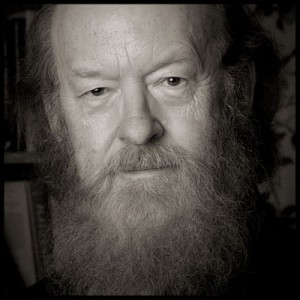The theme of the 2014 IARPT annual meeting, which convened on June 9-12 in Manitou Springs, Colorado, was Robert Neville’s Ultimates: Philosophical Theology, Volume One.
Robert Neville is a towering figure in the history of IARPT. In a career spanning fifty years, he has charted a distinct position within contemporary philosophical theology with clarity, consistency, and ambition. In his first book, 1968’s God the Creator, Neville integrated aspects of pragmatic philosophy and process cosmology into an innovative argument for creation ex nihilo, an argument that remains at the heart of his project. In subsequent works, he has addressed the question of freedom in creation (Cosmology of Freedom, 1974), the public nature of philosophy and theology (Soldier, Sage, Saint, 1978), the construction of a system in which all thinking is valuing (Reconstruction of Thinking, 1981; Recovery of the Measure, 1989; Normative Cultures, 1995), the application of semiotics to theological ends (The Truth in Broken Symbols, 1996; Symbols of Jesus, 2001), and the robust defense of pragmatic and process thought as means of avoiding the pitfalls of modernism and its discontents (The Highroad Around Modernism, 1992; Realism in Religion, 2009). Throughout these works, a common question pervades: why is there something rather than nothing?
Neville’s Philosophical Theology series explicitly addresses this question and is arguably his most ambitious work to date—in fact, it may very well represent a definitive statement of his views. A projected three volume work nearing completion, the first installment of Philosophical Theology was published in 2013 under the title: Ultimates. This volume was the focus of the conference. To the question of how or why there is something rather than nothing, Neville answers with a shift away from some of modernist (and postmodernist) philosophy’s most ingrained axioms, openly embracing philosophical system-building, metaphysics, and discussions of value as inseparable from interpretation. The question of ultimacy orients investigation upon the essential features of determinate things, as well as an ongoing clarification of their conditional features that requires thoroughly looking into any and all networks in which determinate objects participate. For all its rigors, Ultimates offers a means of surveying religious pluralism without succumbing to relativism or reductionism, as well as a testament to philosophy’s utility in exploring first-order theological claims.
In addition to papers focused on Ultimates, we welcomed others that dealt with previous works by Neville or that placed him in dialogue with other thinkers, problematics, and traditions of thought. This year’s intellectual autobiography (an IARPT annual tradition) was given by Gary Dorrien, and the four plenary speakers were Robert Corrington, Randy Auxier, George Allan, and Michael Raposa.
